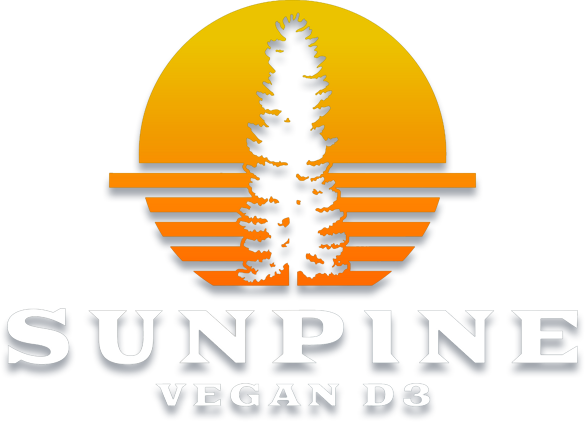
Forest Sourced, Vegan Certified
SunPine® Vegan D3 is the First Vitamin D3
Sustainably-Sourced from Pine Trees.
The Loblolly Pine, native to the US Southeast, is the source for the plant-based SunPine. The SunPine process uses lumber milling byproducts so that none of the tree goes to waste.
SunPine is produced through a process similar to that of traditionally animal-sourced Vitamin D3. But instead of animal-based cholesterols as starting material, SunPine uses pine sterols. The result is a bioidentical Vitamin D3 molecule, also known as cholecalciferol.
Benefit Categories
![]()
Vegan
![]()
Bone
![]()
Immune
![]()
Mood
![]()
Heart
Clean Label
SunPine™ Vegan D3 shares the same high standards for quality as today’s consumers and provides assurances of those standards. SunPine has been verified by the Non-GMO Project, certified Vegan by the Vegan Society of the UK, and is available in both conventional USDA Certified Organic.

The Best of Both Worlds
Vegan
Get 100% plant-based product everyone can use. It is certified vegan, Non-GMO project Verified, and allergen-free.
![]()
D3
Get the D3 form of Vitamin D which raises blood levels more efficiently and boosts immunity more effectively.
Vitamin D Forms
D3 VS. D2
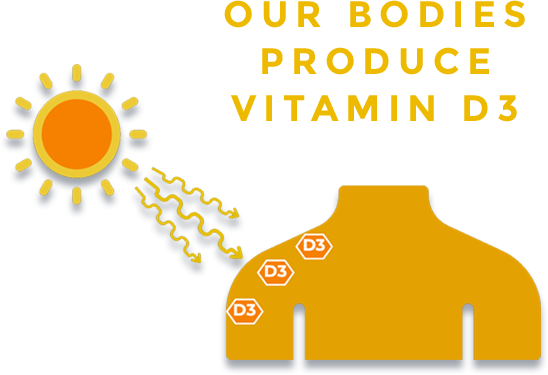 Vitamin D2 (ergocalciferol) is produced by yeast and some plants, while D3 (cholecalciferol) traditionally comes from animal sources. Vitamin D3 is the form produced in our skin when it is exposed to sunlight.
Vitamin D2 (ergocalciferol) is produced by yeast and some plants, while D3 (cholecalciferol) traditionally comes from animal sources. Vitamin D3 is the form produced in our skin when it is exposed to sunlight.
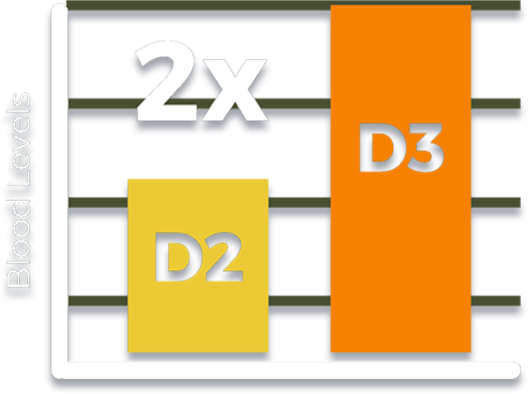 When addressing Vitamin D deficiency, doctors recommend supplementing with the D3 form as it is up to twice as effective at raising blood levels in deficient individuals.
When addressing Vitamin D deficiency, doctors recommend supplementing with the D3 form as it is up to twice as effective at raising blood levels in deficient individuals.
D3 is up to twice as effective at raising blood levels
 Recent research suggests that the benefits to the immune system we receive from Vitamin D comes from D3 but not D2 through its stimulatory effects on innate immunity.
Recent research suggests that the benefits to the immune system we receive from Vitamin D comes from D3 but not D2 through its stimulatory effects on innate immunity.
It’s likely that D3, but not D2, can stimulate innate immunity
Health Implications
CAUSE FOR CONCERN
Vitamin D Deficiency
Vitamin D deficiency is endemic in many parts of the world, In the United States approximately 40% of adults have deficient or insufficient levels of Vitamin D. And for US children the problem is even greater - 50% of children ages 1 - 5, and 70% ages 6 - 11 are deficient.

Health Risks
A wide array of health problems are associated with Vitamin D deficiency: impaired immunity, diabetes, osteoporosis, depression, heart disease, and obesity. In children it can cause muscle and bone pain, increase the risk of autoimmune disorders, and in extreme cases lead to rickets.

Opportunity
Consumption of plant-based foods and supplements is rapidly growing and is already a nutritional staple in many homes. Many of the current plant-based products contain less Vitamin D than the animal-based foods they are replacing. Broad fortification of plant-based products would have a high impact on the health of millions. A positive impact on consumers' Vitamin D statuses would be a major win for both the public and the industry.

SunPine Can Be
Formulated Into
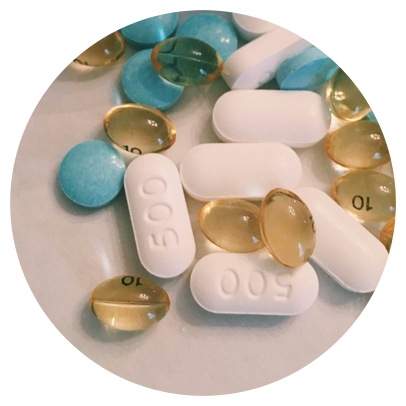
Tablets + Capsules
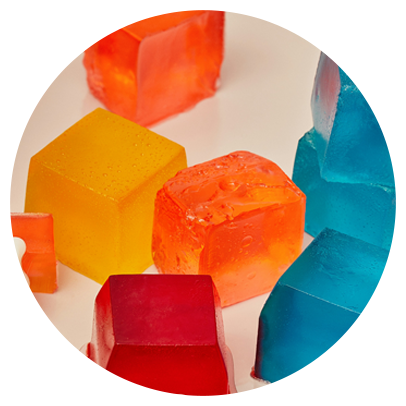
Gummies

Foods
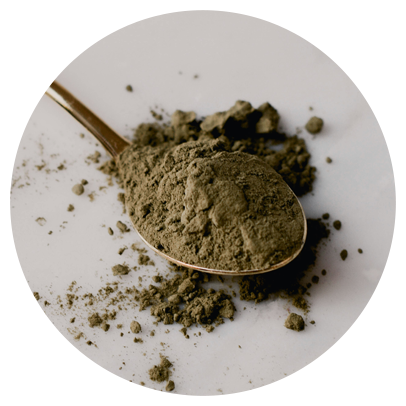
Beverage Powders



